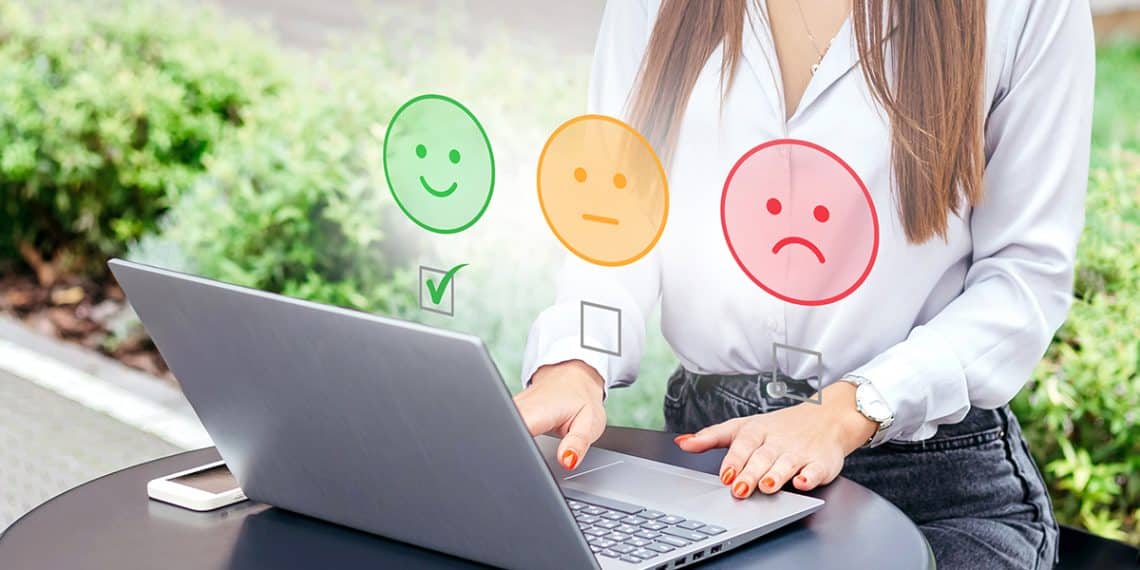When survey responses hold true importance, it becomes quite unnecessary to know who’s responding to the surveys. After all, what’s in a name?
Most customer-related issues can be dealt with effectively if you simply focus on taking action on the collected survey responses. This is one of the main reasons why companies are looking to use anonymous surveys.
In this post, we will help you understand everything you need to learn about anonymous surveys. We will discuss its benefits, best practices, right time to use, and steps to create anonymous surveys.
So, let’s cut to the chase and figure out what anonymous surveys really are, shall we?
Collect feedback with JustFeedback
JustFeedback helps your business increase profits and reduce risk by improving your customer experience
What is an anonymous survey?
Anonymous survey, as the name suggests, is a tool businesses use that allows them to solicit responses from respondents while ensuring that their identities stay private.
What does that mean? Well, as a surveyor, you will not ask or collect information like email addresses, names, IP addresses, and other personal information from the responder.
As you ignore such Personally Identifiable Information or PII, you ensure that no one can trace the response back to the respondent.
This is one reason why we recommend companies figure out if they really need to send anonymous surveys.
While you can get the responses in the campaign, you will miss out on personalization and improving business-customer relationships.

What are the benefits of anonymous surveys?
Are anonymous surveys worth your time and effort? Let’s find out. Here are the key benefits of using anonymous surveys —
1. Increased honesty and openness
Most respondents feel free to share honest responses when they know their identity is hidden.
It will give them the freedom to be more comfortable and express their opinions without fear of repercussions.
The negative feedback received as a result can be quite helpful.
2. Reduced bias
Perception may lead to bias.
This is one reason why many respondents might alter their responses to meet the general perception and not get accused of going against it.
As you bring anonymity to the picture, you set yourself up to achieve accurate and unbiased data.
3. Encourage participation
If you mention that the survey is not anonymous and solicits personal information, a huge percentage of the recipients will refrain from participating. The moment you assure them of their anonymity, you will attract a higher survey response rate.
4. Protection of privacy
Modern-day internet users and customers are concerned about their privacy online.
If you want to assure privacy protection, the best thing to do is tell recipients that the survey is completely anonymous and no personal information will be asked.
This is a perfect way to foster a positive relationship with them.
5. Enhanced data quality
As anonymous survey responses attract thoughtful and detailed responses, this automatically improves the quality of collected data.
With the high-quality data, you will be able to achieve deep analysis and derive more accurate conclusions.
6. Captured diverse perspectives
Inclusivity is a massive advantage of using anonymous surveys.
This is because it encourages even the marginalized and hesitant group of society to speak up and share opinions more openly.
In this way, you can capture responses from a broader range of individuals and diverse perspectives.
7. Facilitates sensitive topics
What if you are touching sensitive topics in your surveys?
This is a perfect reason to send anonymous surveys because that way respondents will not have to think of the societal repercussions.
Responses on sensitive topics must be collected through anonymous surveys only.

When to use anonymous surveys?
Now that you are well acquainted with anonymous surveys, it’s time we figure out the right conditions and time to use them. Here are the times when you should use anonymous surveys —
1. Sensitive topics
Anonymous surveys should be used when you have to address sensitive and personal topics.
These topics can be related to health, discrimination, issues in life and the workplace, substance abuse, and more.
As these are sensitive topics, allowing anonymity helps respondents provide honest and candid feedback.
2. Employee feedback
As a business owner, you can use anonymous surveys to gather feedback from employees.
The data collected can be mapped with employee satisfaction, job satisfaction, organizational culture, management effectiveness, and other issues in workplaces.
Anonymous surveys give employees the opportunity to express their opinions and issues.
3. Customer feedback
Not just employees, you can seek candid and straightforward feedback from customers as well.
Anonymous surveys are highly useful in collecting feedback about negative experiences or criticisms. The feedback collected comes in handy in improving customer satisfaction.
4. Community surveys
If you are seeking feedback from a community or population-based target audience, you will find it challenging to gain honest feedback.
This is because the respondents will have a fear of social judgment or reprisal.
Adding the anonymity factor to the equation helps gain an accurate representation of the community and the challenges it faces.
5. Research studies
Another excellent time to send anonymous surveys is when you need to conduct market research.
With anonymous academic surveys, you can go deep into the personal lives of the recipients and solicit honest feedback from research participants.
This results in more reliable research insights.
6. Leadership feedback
How effective is the leadership at your organization? This is a critical question that can positively impact business growth.
Anonymous surveys give participants the opportunity to let go of the fear of consequences and potential retaliations and provide honest leadership assessments.
7. Confidential feedback
Business growth is also highly dependent on stakeholders. If there’s an issue that a board member is not able to convey in public meetings, they can make use of anonymous surveys and share their opinions and perspectives.
This can be very useful in resolving unreported issues and restoring transparency, trust, and accountability in the organization.

How do you create an anonymous survey?
If you want to create an anonymous survey, let us tell you that it is no rocket science. All you need to do is choose survey software or online survey tools that best fulfill your specific requirements and support anonymous responses.
Then you will have to start designing the surveys and carefully develop your survey questions. Make sure your questions are clear, concise, and relevant.
The questions can be multiple-choice, open-ended, or even rating-based.
Most importantly, the questions shouldn’t be asking for respondents’ information like names, email addresses, or other personal details. Next, you will have to enable anonymous responses on the platform.
You can do this by accessing the settings of the survey tool. Another thing to consider when delivering anonymous surveys is clear instructions. Make sure the respondents know what the survey is for and how they can make it useful.
At the same time, reassure them about the survey’s anonymity. The next step is to test the surveys and check if the features involved are working correctly.
Get a look with fresh eyes to identify any issues or errors in the survey questions as this might help improve user experience.
The final step in the process will be to distribute the anonymous survey link through appropriate channels while adding a brief introduction about the survey’s mission, i.e., reiterating the anonymous nature of the survey.
What are anonymous survey best practices?
When drafting an anonymous survey, you can use the following best practices —
- Always introduce
Before making the recipients start responding to the survey, make sure they understand the concept of anonymous surveys.
Provide them with enough details so they realize the importance and usefulness of the exercise.
- Ask no personal questions
Personal questions are not going to help you achieve or stay consistent with your promise of anonymity. So, make sure you don’t ask for any personal contact information from the respondents.
At the same time, exclude all questions that directly or indirectly ask for respondents’ names, mobile numbers, and email addresses.
- Use close-ended questions
Another excellent way to ensure that personal information is not captured is to ask more close-ended questions.
However, stay away from the practices of indirectly linking the survey participants to their identities.
- Practice caution
Caution should be a constant when drafting and sending anonymous surveys, especially when asking demographic questions.
This is to maintain the sensitivity of your surveys and ensure survey participant identity is not sought.
- Ignore survey custom variables
To completely avoid PII, you will have to avoid using contact variables or hidden variables that can be passed as survey variables.
It’s important because the data sent and received through the survey link does come attached to some identifiable information. This can be avoided by making the survey completely anonymous.
Final thoughts!
There you have it. We shared everything you need to know about using anonymous surveys for your business and marketing campaigns.
Anonymous surveys are an excellent tool to boost customer engagement. When you send them, recipients find it easier to respond because the responses are not attached to their personal identity.
It’s only then can the responses be candid and opinionated.
The benefits we discussed are a testament to the effectiveness of anonymous surveys. However, you must make sure you send the anonymous surveys at the right time and through the right channels.
We hope you found this post helpful. Also, don’t forget to check out other informative posts on the blog!
